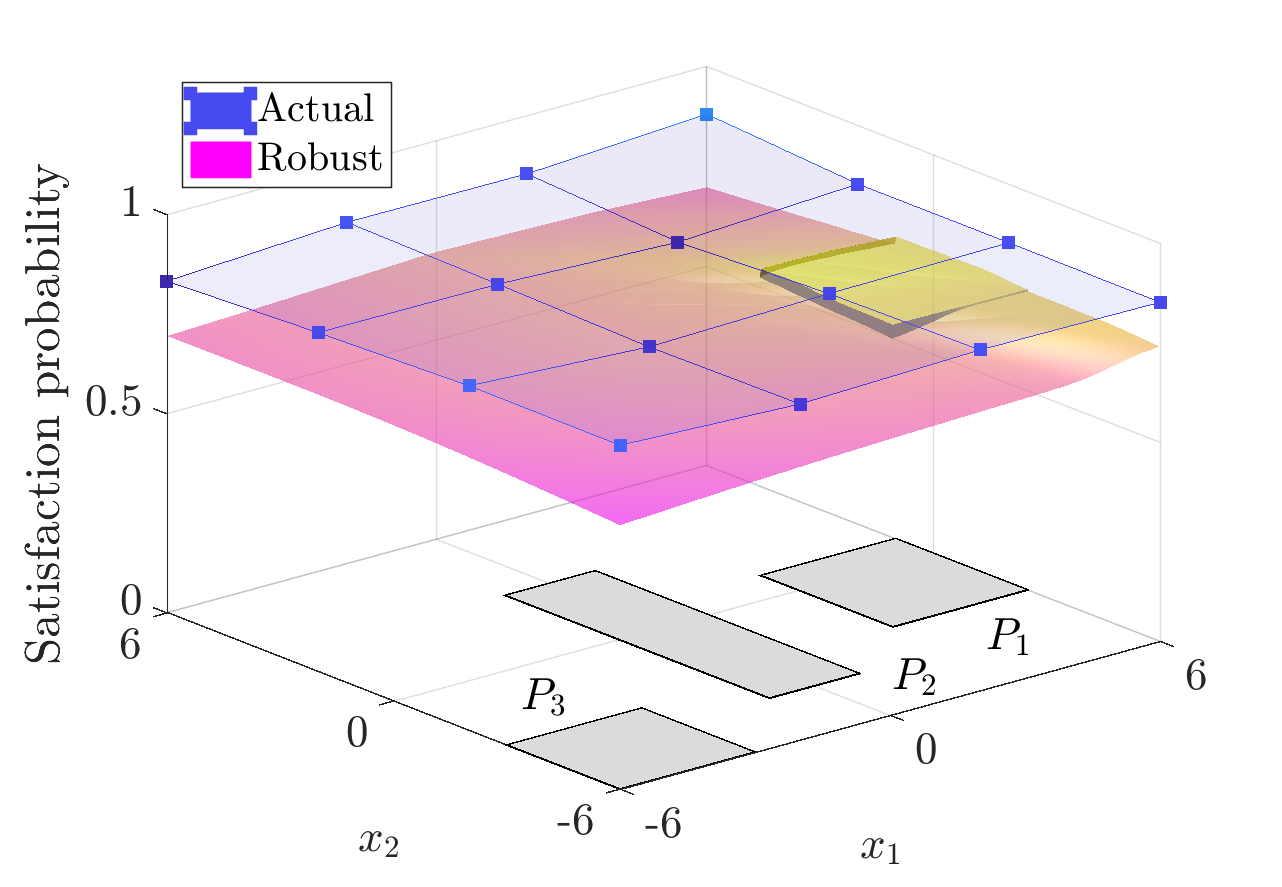Power Systems


Figure 1. Satisfaction Probability
Formal methods approaches for power systems have multiple interesting and challenging research directions. There are two main types of control required, frequency control and voltage control which are each treated separately. These systems have varying response types with the fastest being primary control, which requires the power network to respond in under a second to any disturbances that occur. These power systems can also vary in size, from microgrids with only a few buses to large multi-area power systems with hundreds of buses. The two main challenges are therefore (i) to provide fast and accurate control approaches, and (ii) to provide scalable control approaches to large dimensional systems.
So far, abstraction-based techniques have been used to design fast primary control responses for power system frequency fluctuations. This involves the computational effort to determine system transitions and calculate the optimal input to guarantee the safety of the power system or to reach some safe region when the frequency falls below some threshold. These inputs can be stored in a lookup table controller which can provide instantaneous control responses. Regarding scalability, robust simulation functions have been proposed as a method to compute reduced-order models of the systems but with a calculated simulation relation error to consider. The abstract (reduced-order) model can be used to design the controller and the simulation relation error can act as a buffer to provide a correct (but conservative) design of a controller.
Researchers

Ben Wooding
PhD Student
b.wooding1@newcastle.ac.uk

Sadegh Soudjani
Researcher
Projects
none